Noncanonical amino acids are efficiently incorporated into proteins by optimizing mRNA codon usage.
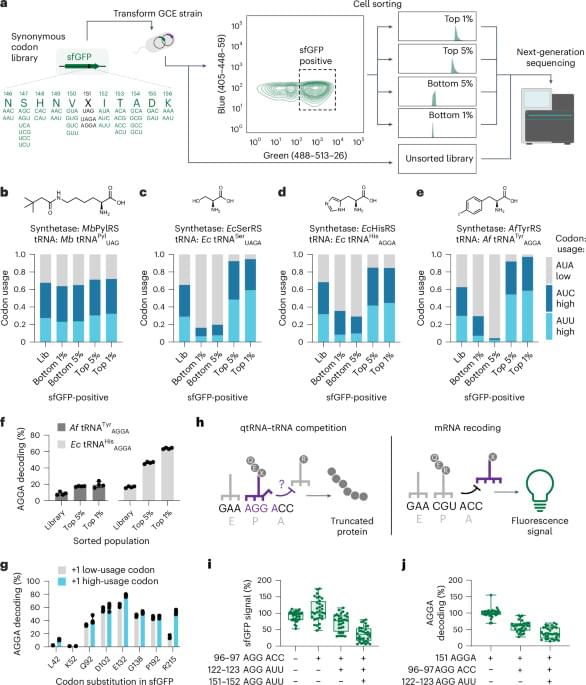

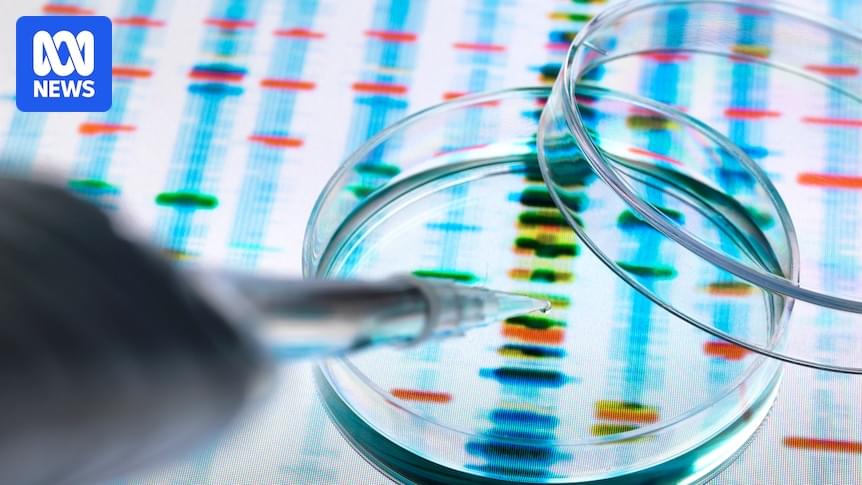
Life insurers and those offering income protection and permanent disability insurance will be banned from using genetic testing to refuse cover, or hike up charges, for a range of insurance products.
The federal government announced on Tuesday it would ban the practice that saw consumers discriminated against if they disclosed the results of genetic tests that predict their likelihood of an inherited disease.
It comes after consultation to address genetic discrimination in life insurance earlier this year. More than 1,000 submissions were received with 97 per cent supporting a total ban.
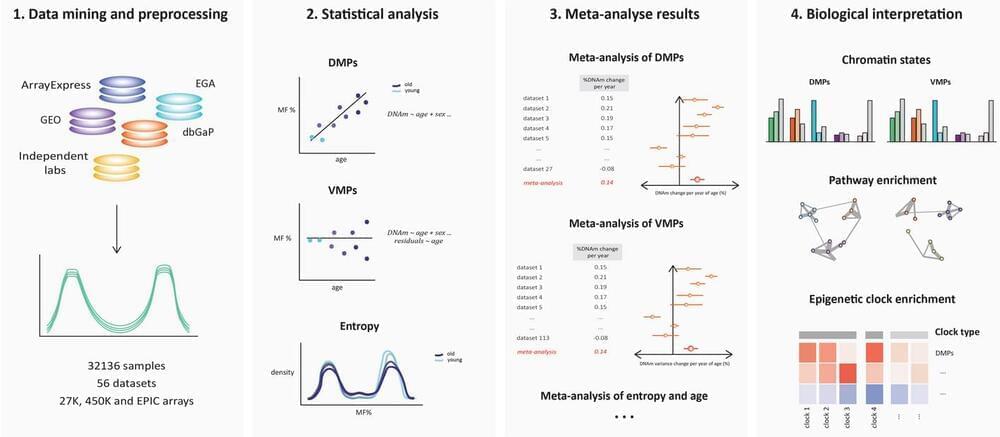
During aging, the human methylome undergoes both differential and variable shifts, accompanied by increased entropy. The distinction between variably methylated positions (VMPs) and differentially methylated positions (DMPs), their contribution to epigenetic age, and the role of cell type heterogeneity remain unclear.
We conduct a comprehensive analysis of 32,000 human blood methylomes from 56 datasets (age range = 6–101 years). We find a significant proportion of the blood methylome that is differentially methylated with age (48% DMPs; FDR 0.005) and variably methylated with age (37% VMPs; FDR 0.005), with considerable overlap between the two groups (59% of DMPs are VMPs). Bivalent and Polycomb regions become increasingly methylated and divergent between individuals, while quiescent regions lose methylation more uniformly. Both chronological and biological clocks, but not pace-of-aging clocks, show a strong enrichment for CpGs undergoing both mean and variance changes during aging. The accumulation of DMPs shifting towards a methylation fraction of 50% drives the increase in entropy, smoothening the epigenetic landscape. However, approximately a quarter of DMPs exhibit anti-entropic effects, opposing this direction of change.
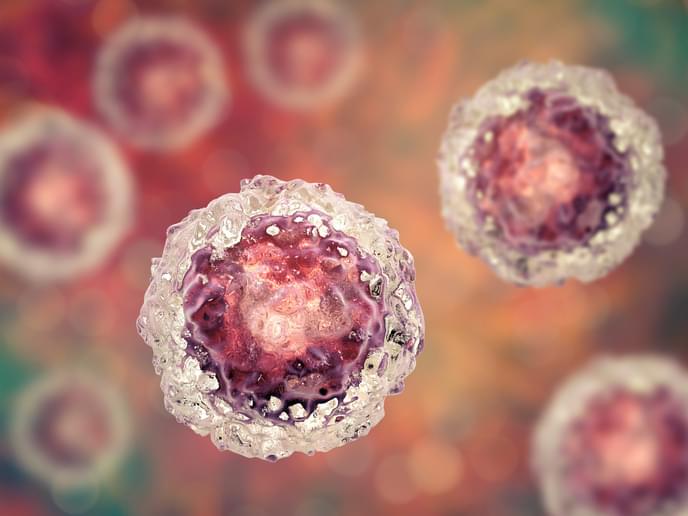
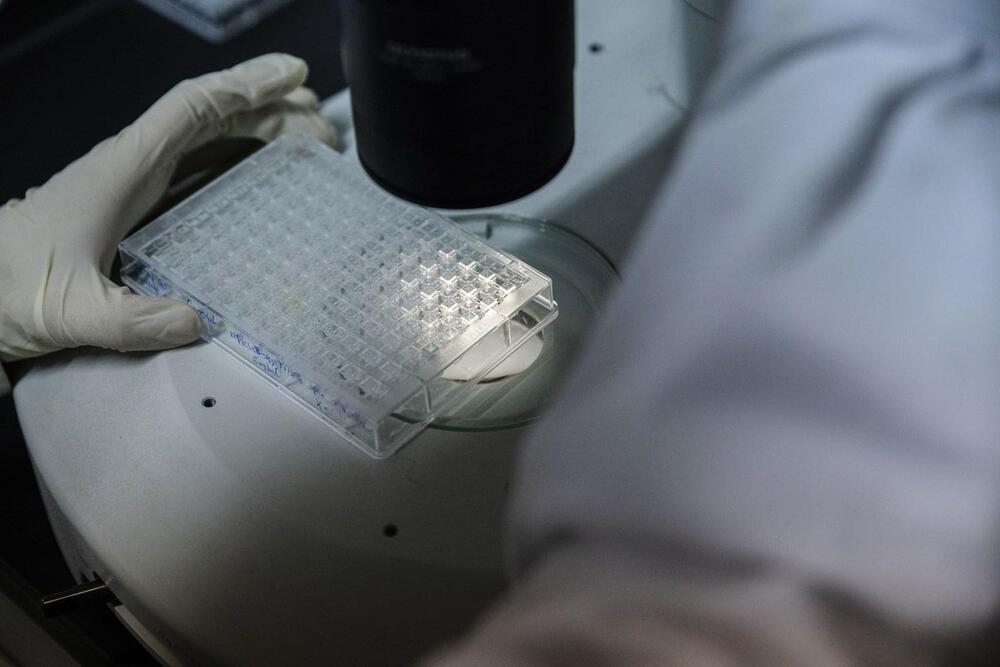
Human lifespan is shaped by both genetic and environmental exposures and their interaction. To enable precision health, it is essential to understand how genetic variants contribute to earlier death or prolonged survival. In this study, we tested the association of common genetic variants and the burden of rare non-synonymous variants in a survival analysis, using age-at-death (N = 35,551, median [min, max] = 72.4 [40.9, 85.2]), and last-known-age (N = 358,282, median [min, max] = 71.9 [52.6, 88.7]), in European ancestry participants of the UK Biobank. The associations we identified seemed predominantly driven by cancer, likely due to the age range of the cohort. Common variant analysis highlighted three longevity-associated loci: APOE, ZSCAN23, and MUC5B. We identified six genes whose burden of loss-of-function variants is significantly associated with reduced lifespan: TET2, ATM, BRCA2, CKMT1B, BRCA1 and ASXL1. Additionally, in eight genes, the burden of pathogenic missense variants was associated with reduced lifespan: DNMT3A, SF3B1, CHL1, TET2, PTEN, SOX21, TP53 and SRSF2. Most of these genes have previously been linked to oncogenic-related pathways and some are linked to and are known to harbor somatic variants that predispose to clonal hematopoiesis. A direction-agnostic (SKAT-O) approach additionally identified significant associations with C1orf52, TERT, IDH2, and RLIM, highlighting a link between telomerase function and longevity as well as identifying additional oncogenic genes.
Our results emphasize the importance of understanding genetic factors driving the most prevalent causes of mortality at a population level, highlighting the potential of early genetic testing to identify germline and somatic variants increasing one’s susceptibility to cancer and/or early death.
The authors have declared no competing interest.
Sources and further reading:
- Bridge RNAs direct programmable recombination of target and donor DNA https://www.nature.com/articles/s4158…
- Structural mechanism of bridge RNA-guided recombination https://www.nature.com/articles/s4158…
Join us on Patreon! https://www.patreon.com/MichaelLustgartenPhDDiscount Links/Affiliates (Ways To Test Yourself, While Also Helping To Support The Channe):…
This gene therapy treats LCA1, causing early childhood vision loss, affecting under 100,000 people:
“One patient reported for the first time being able to navigate at midnight outdoors only with the light of a bonfire,” said Cideciyan, who is also co-director of the Center for Hereditary Retinal Degenerations.
The clinical trials were co-led by researchers from the Perelman School of Medicine at the University of Pennsylvania.
The gene therapy (ATSN-101) is specifically designed to target and correct the genetic mutation in the GUCY2D gene. This gene creates vision-imparting proteins. ATSN-101 is “adapted from the AAV5 microorganism.”
